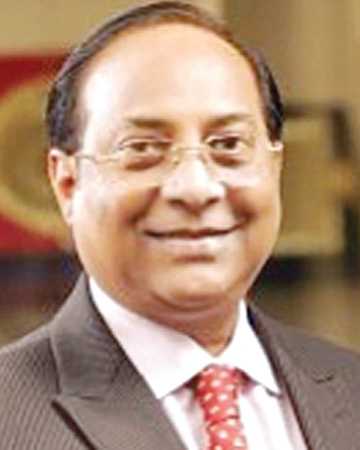Banks’ average spread stands at 5.14pc
Despite repeated reminders by the central bank, most of the banks seem reluctant to reduce their spread between the interest rates on lending and deposit mostly due to higher operational costs. Surprisingly instead of lowering the rate, the average spread of the banks has started experiencing an upward trend in recent days. Bangladesh Bank has long been instructing the commercial banks to keep the spread below five percent with a view to reducing the high lending rate. The central bank issued a circular as on January 27, 2012 asking the banks to reduce their spread rate within 5 per cent by March, 2013.
According to Bangladesh Bank (BB), the average spread stood at 5.14 per cent at the end of April, 2014 while it was 5.15 per cent in March, 5.06 per cent in February and 5 per cent in January last. The average spreads of nationalized and specialized banks, however, remained within the central bank’s prescribed rate. But the situation is a little bit different in cases of the Private Commercial Banks (PCBs) and Foreign Commercial Banks (FCBs) which were over 5 per cent.
Among the 39 PCBs, some 17 banks have failed to keep their spread rate below the central bank’s prescribed rate of 5 per cent in April. The banks included the AB Bank, The City Bank, Pubali, Uttara, Eastern, Prime, Dhaka, Social Islami, Dutch-Bangla, Southeast, Prime, ONE, Bangladesh Commerce, Premier, Bank Asia, Jamuna and BRAC Bank Limited.
Of the 9 FCBs, some7 banks have also failed to keep their spread within 5 per cent. The FCBs included Standard Chartered, Habib Bank, Citi Bank NA, Commercial Bank of Ceylon, Woori, HSBC and Bank Al-Falah.
“The spread is increasing gradually because of poor monitoring system and increase of operational costs,” said Bangladesh Bank former governor Salehuddin Ahmed. “Mere instruction is not sufficient rather it needs strict surveillance and strong monitoring which ultimately help contain the spread”, the former governor added.
According to the central bank, schedule banks on an average provided 8.11 per cent interest against deposits and received 13.25 per cent interest against lending. During the period (in April last) the average spread of four state owned commercial banks was about 3.58 per cent. Their average deposit rate was 7.54 per cent while the lending rate was 11.12 per cent.
The specialized banks average spread was 3.53 per cent. Their deposit rate was 9.55 per cent and the lending rate was 13.08 per cent. On the other hand, PCBs average spread rate was 5.35 per cent. The average deposit rate of PCBs was 5.35 per cent.
The PCBs group offered 8.52 per cent against deposit and received 13.87 against lending.
An unexpected spread rate was noticed in the case of FCBs, which shot up to 8.47 per cent at the end of April last.
The FCB groups offered 4.54 per cent interests on deposits while lending rate was 13.01 per cent.
BB executive director M Mahfuzur Rahman said the central bank holds frequent meetings with chief of all banks after every three months interval and discussed the overall performance and give necessary instruction to keep the spread within 5 per cent.
Earlier the central bank governor, Dr Atiur Rahman warned the banks to keep their spread within the desired level. “Banks will not get permission for opening new branches if they exceed the targeted spread”, said the governor.
In spite of the warnings and instructions, banks failed to carry out the instructions in reducing the spread, said economist MM Akash terming it ominous for the economic development.
The central needs to impose exemplary punishment against the banks violating its instructions, said the economist.
Expressing his resentment, FBCCI vice-president Md Helal Uddin, said the country’s banking sector fails to provide low interest credit facilities due to its higher spread.
He urged the central bank to take proper measures against the banks who failed to reduce their spreads. Banks definitely have to reduce the spread for providing low interest loan for the betterment of the business community as well as economy, he added.
News:The Indepentdent/3-June-2014 



 Khondker Fazle Rashid has joined
Khondker Fazle Rashid has joined Dhaka- Signing Ceremony between
Dhaka- Signing Ceremony between